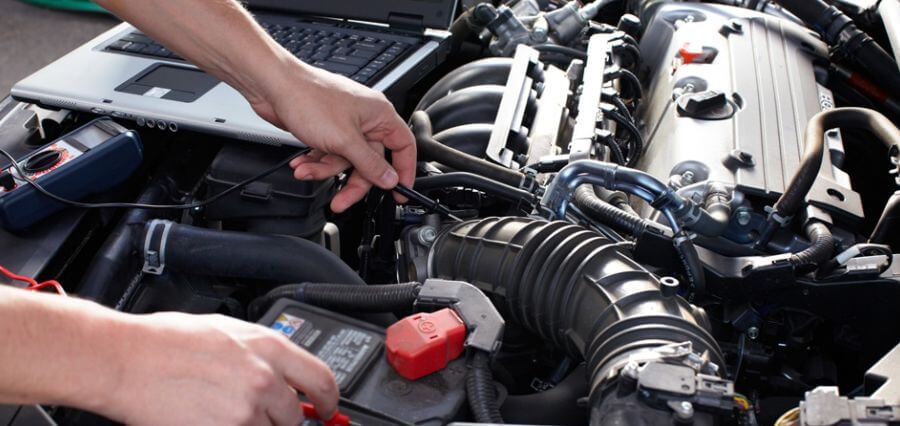How Cold Weather Kills Your Gas Mileage: Weather-Proof Your Fuel Efficiency
Cold weather decreases gas mileage due to increased aerodynamic drag, decreased tire pressure, and lower energy content in winter-grade gasoline. As temperatures drop, colder air becomes denser, resulting in higher drag on vehicles, especially at higher speeds. Additionally, tire pressure tends to decrease in colder temperatures, leading to increased rolling resistance. Moreover, winter blends of gasoline contain slightly less energy per gallon compared to summer blends. These factors combined make the engine work harder and less efficiently, resulting in decreased fuel economy during cold weather conditions. It is important to understand how cold weather affects gas mileage in order to take appropriate measures to improve fuel efficiency and save money. 1. The Relationship Between Cold Weather And Gas Mileage In cold weather, your gas mileage is negatively impacted due to various factors. Colder air is denser, increasing aerodynamic drag on your vehicle, especially at higher speeds. Additionally, tire pressure decreases in colder temperatures, leading to increased rolling resistance. These combined factors result in decreased fuel efficiency during cold weather. Colder Air Increases Aerodynamic Drag, Especially At Highway Speeds. One of the main reasons cold weather impacts gas mileage is due to the increase in aerodynamic drag caused by colder air. As the temperature drops, the air becomes denser, creating more resistance against your vehicle as it moves through the atmosphere. This increased drag can have a significant impact on your gas mileage, especially at higher speeds on the highway. Decreased Tire Pressure In Cold Temperatures Leads To Higher Rolling Resistance. In addition to increased aerodynamic drag, cold weather also affects your gas mileage through decreased tire pressure. As temperatures drop, the air inside your tires contracts, leading to a decrease in tire pressure. This lower pressure can cause your tires to have higher rolling resistance, which means your engine has to work harder to move the vehicle forward. The increased rolling resistance results in reduced fuel efficiency and ultimately lower gas mileage. Winter Gasoline Blends May Have Slightly Less Energy Per Gallon Than Summer Blends. Another factor contributing to decreased gas mileage in cold weather is the use of winter gasoline blends. During the winter months, gasoline blends are adjusted to accommodate colder temperatures. These winter blends often contain additives that help with cold starts and reduce the risk of fuel line freezing. However, these additives can also slightly decrease the energy content of the fuel, resulting in slightly lower gas mileage compared to summer blends. Overall, the relationship between cold weather and gas mileage is multifaceted. Colder air increases aerodynamic drag, leading to decreased fuel efficiency, while decreased tire pressure and winter gasoline blends also contribute to lower gas mileage. By understanding these factors, you can take steps to mitigate the impact of cold weather on your fuel economy and optimize your gas mileage during the winter months. Credit: www.firestonecompleteautocare.com 2. Why Cold Weather Decreases Fuel Efficiency When it comes to driving in cold weather, there is one thing that many drivers notice: their gas mileage decreases. But why does this happen? Let’s take a closer look at the reasons behind this decrease in fuel efficiency during colder months. 1. Engine Takes Longer To Reach Its Most Fuel-efficient Temperature. During cold weather, it takes longer for your engine to reach its most fuel-efficient temperature. This is because the engine needs to warm up in order to operate efficiently. Fuel combustion and engine lubrication are less efficient when the engine is cold, resulting in more fuel consumption. As a result, your gas mileage decreases. 2. Shorter Trips Are More Affected By This, As The Engine Spends More Time In Less-efficient Warm-up Mode. Shorter trips are particularly affected by the decrease in fuel efficiency during cold weather. This is because the engine spends more time in the less-efficient warm-up mode during shorter trips. When you only drive for a short distance, the engine doesn’t have enough time to reach its optimal operating temperature. As a result, the engine remains in a less fuel-efficient mode for a longer period of time, leading to increased fuel consumption. To maximize fuel efficiency during cold weather, it is recommended to combine multiple short trips into one longer trip whenever possible. This allows the engine to reach its optimal operating temperature and stay in the most fuel-efficient mode for a longer period of time. Additionally, using engine block heaters or parking in a garage can help warm up the engine faster and improve fuel efficiency. 3. Effects Of Temperature On Fuel Economy Cold weather negatively impacts fuel economy due to several factors. The denser air causes more aerodynamic drag at higher speeds, while colder temperatures decrease tire pressure and increase rolling resistance. Additionally, winter grades of gasoline have slightly less energy per gallon compared to summer blends. These factors combine to reduce gas mileage in colder weather conditions. Cold Air Is Denser Than Warm Air, Causing Increased Drag On The Vehicle. One of the effects of temperature on fuel economy is the increased drag on the vehicle caused by cold air. As the temperature drops, the air becomes denser, which leads to higher aerodynamic drag. According to energy.gov, this drag increases significantly at highway speeds, making it harder for the vehicle to maintain its momentum and resulting in lower gas mileage. Drag Increases At Highway Speeds, Resulting In Lower Gas Mileage. The increase in drag due to cold air density has a more pronounced effect on gas mileage at highway speeds. When driving at higher speeds, the resistance caused by the denser air requires the engine to work harder to maintain the same speed. This increased effort leads to higher fuel consumption and ultimately lower gas mileage. In colder weather, drivers may experience a noticeable decrease in their vehicle’s fuel efficiency, especially during highway driving. This decrease can be attributed to the higher aerodynamic drag caused by the denser cold air, which creates more resistance against the vehicle’s forward motion. As a result, the engine has to work harder to overcome this drag, leading to
How Cold Weather Kills Your Gas Mileage: Weather-Proof Your Fuel Efficiency Read More »





